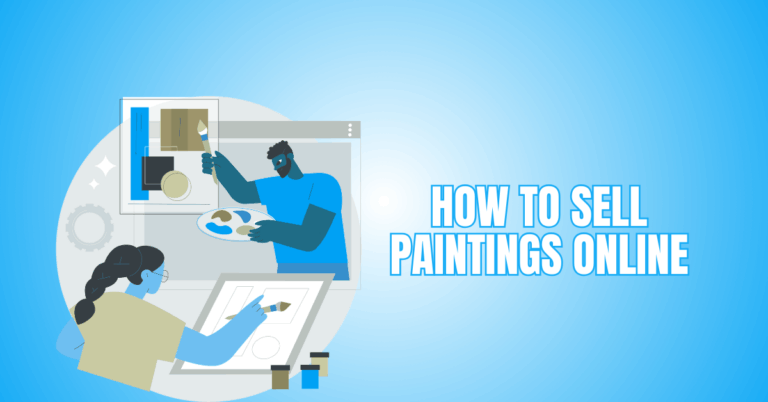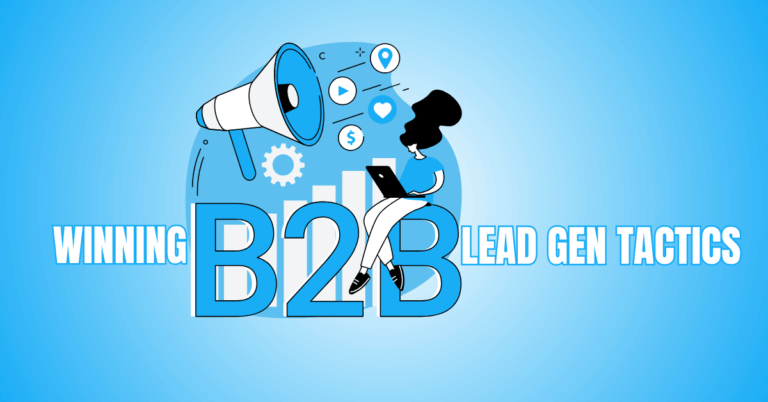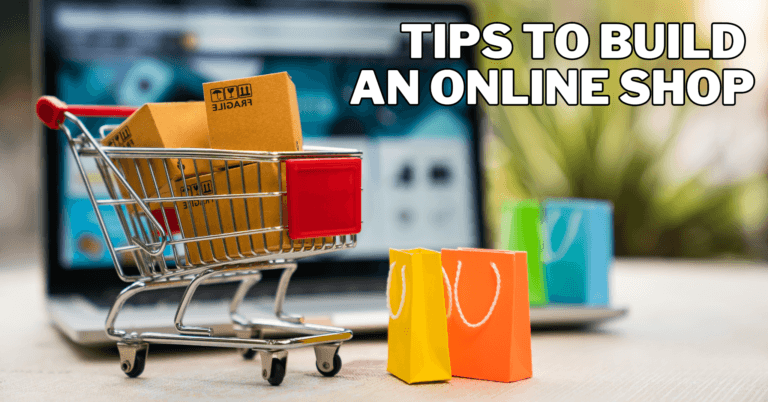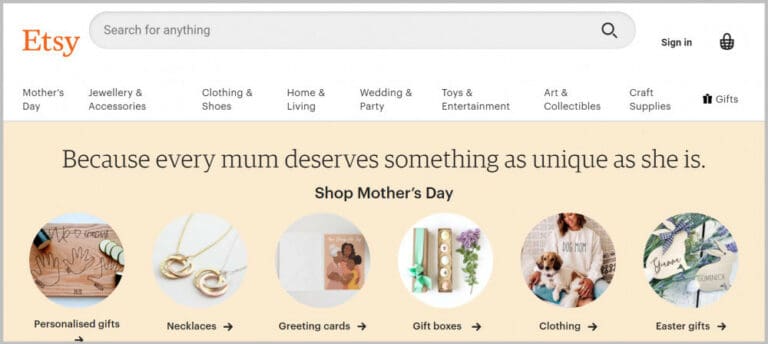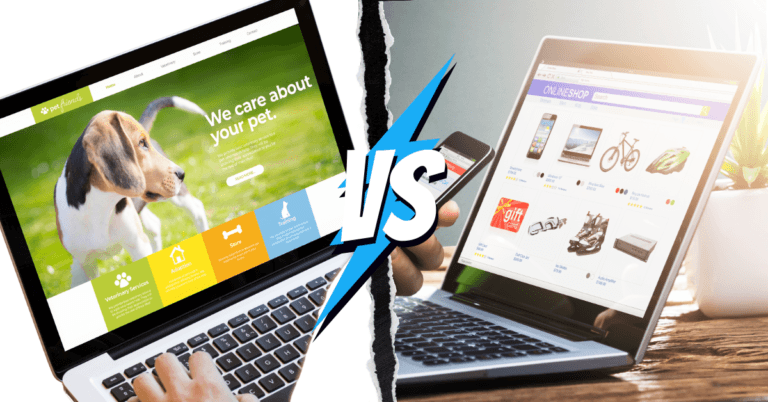Best Ways To Start An eCommerce Business
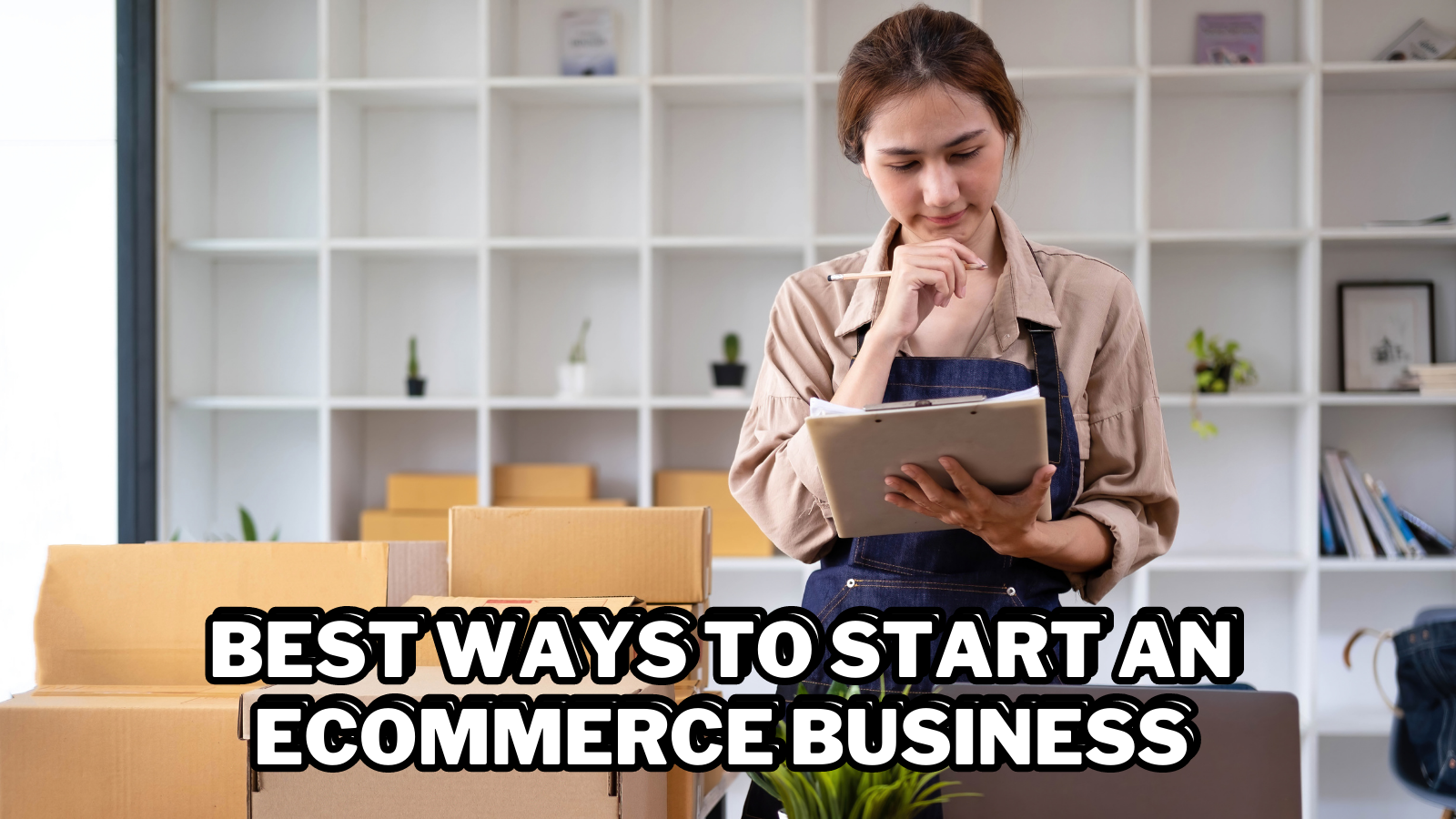
Best Ways To Start An eCommerce Business
With the rise of technology and the increasing popularity of online shopping, starting an e-commerce business has become an appealing option for many entrepreneurs.
E-commerce businesses offer the flexibility of working from anywhere and the potential for a global customer base.
Want to Start Making Money Online?
Try My #1 Recommendation Program!
However, launching an e-commerce business can be overwhelming, especially for those new to the industry.
In this blog post, we'll outline some of the best ways to start an e-commerce business, from choosing a niche to optimizing your website for search engines.
Whether starting from scratch or looking to take your existing business online, these tips will help you to start an e-commerce business.

What Exactly Is An eCommerce Business?
E-commerce, short for electronic commerce, is a business model that involves buying and selling goods and services online.
It refers to any transaction over the Internet, including online shopping, electronic payments, and online auctions.
E-commerce businesses operate through online platforms such as websites, mobile apps, and social media platforms.
The popularity of e-commerce has increased significantly in recent years, with consumers turning to online shopping for its convenience, variety of products, and potential for cost savings.
E-commerce businesses have disrupted traditional retail industries and enabled entrepreneurs to start and grow enterprises to anywhere.
There are several types of e-commerce businesses, including B2B (business-to-business), B2C business-to-consumer), C2C (consumer-to-consumer), and C2B (consumer-to-business).
- B2B e-commerce involves business transactions, while
- B2C e-commerce involves transactions between businesses and consumers.
- C2C e-commerce refers to consumer transactions, such as those on online marketplaces like eBay or Etsy.
- C2B e-commerce involves transactions between consumers and businesses, such as when consumers sell their services or products to a business.
One of the main advantages of an e-commerce business is its lower overhead costs than traditional brick-and-mortar businesses.
eCommerce businesses do not require physical store locations or in-person sales staff, which can significantly reduce operating costs.
Additionally, e-commerce businesses have a wider reach than traditional businesses, allowing them to access a global customer base.
Want to Find Out How To Start Your Home-Based Business?
Try My #1 Recommendation Platform!
Ways To Start An eCommerce Business
Starting an e-commerce business can be a challenging yet exciting venture. You need to take several steps to launch a successful e-commerce business. Here are some of the best ways to start an e-commerce business.
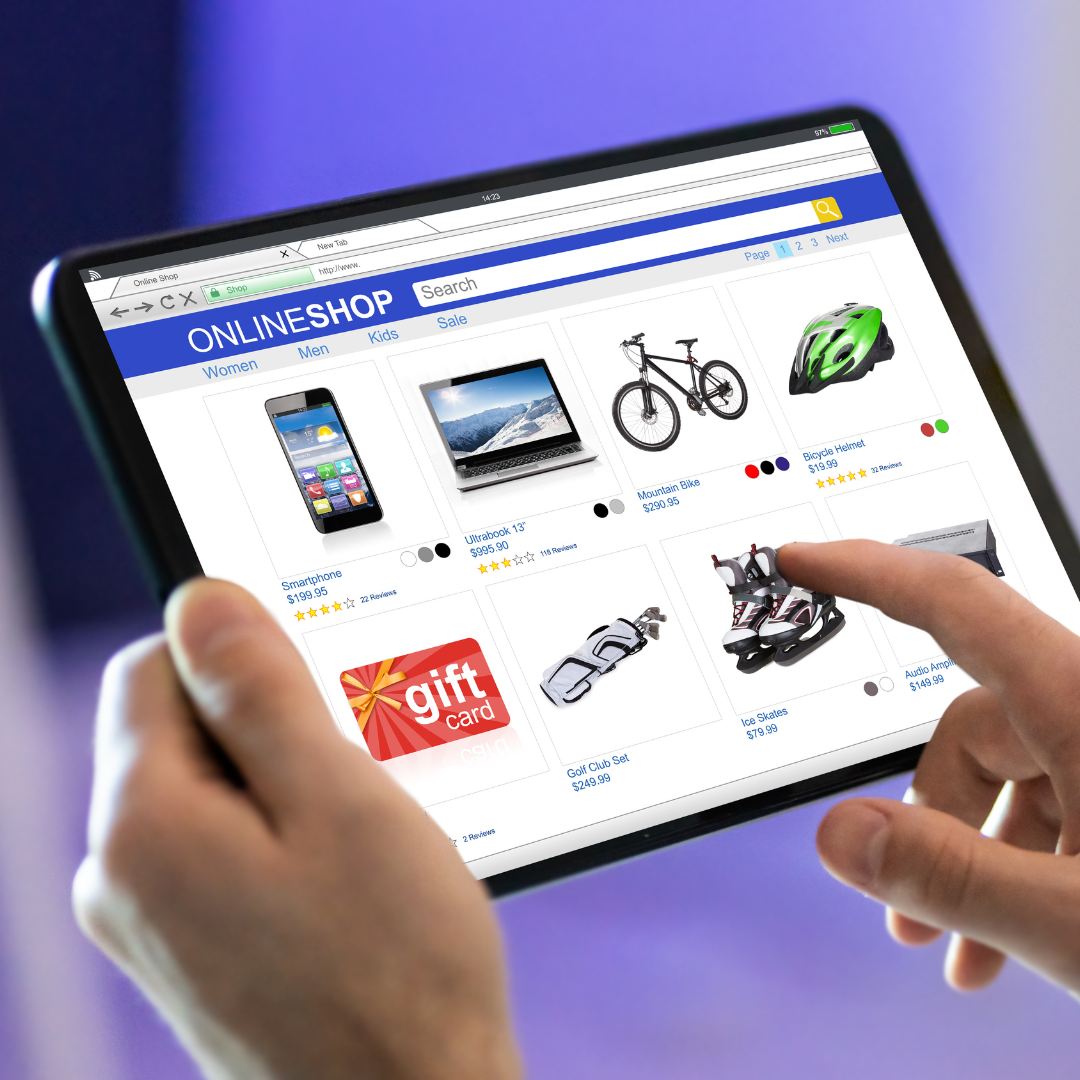
1. Choose A Niche
Choosing a niche is critical in starting an e-commerce business. It involves identifying a specific market that aligns with your interests and expertise and demands your products or services.
To choose a niche, you must conduct thorough market research to determine its viability.
This includes analyzing the competition in your chosen market, assessing the demand for your products or services, and evaluating the profitability of your niche.
Additionally, it would help to consider the trends and consumer behaviours in your chosen market to ensure that your niche is sustainable and has long-term potential.
Ultimately, choosing the right niche is crucial for the success of your e-commerce business, as it will influence your branding, product offerings, and marketing strategies.
By choosing a niche that aligns with your passions and has a strong demand in the market, you can create a thriving e-commerce business that meets the needs of your target audience.
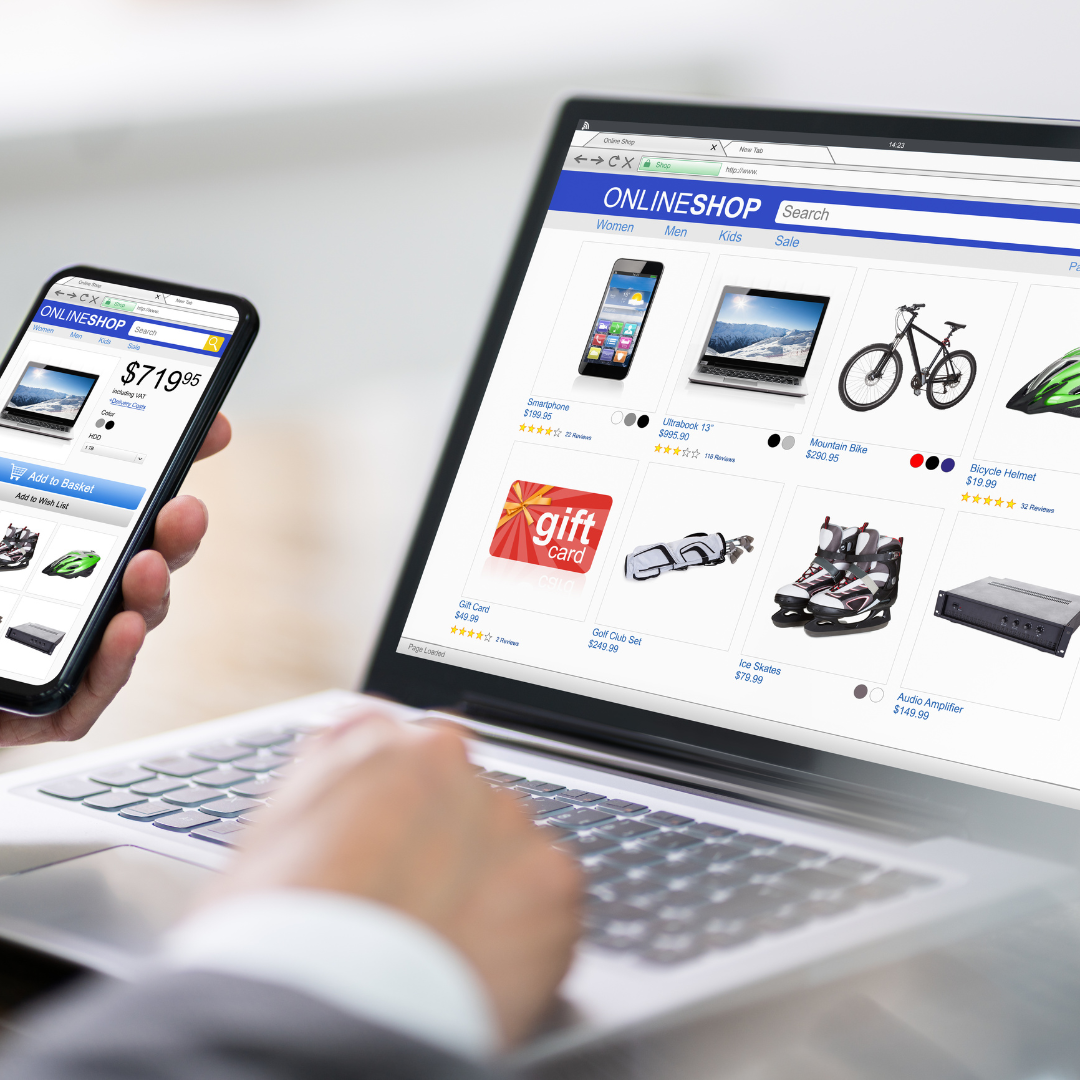
2. Choose Your Products
The success of your e-commerce firm depends on making the proper product selections.
You need to conduct thorough market research to identify the products that are in demand and that will resonate with your target audience. Analyze your competitors' products and identify gaps in the market that you can fill.
Consider selling niche products that are difficult to find elsewhere, as this can help differentiate your business from your competitors.
When choosing your products, ensure they are high-quality, meet customer needs, and have reasonable profit margins.
You should also consider the logistical requirements of selling the products, such as shipping costs and storage space.
Choosing the right products can increase your chances of success in the competitive e-commerce landscape.

3. Set Up Your Supply Chain
Setting up a reliable supply chain is crucial for the success of your e-commerce business.
Start by researching and identifying potential suppliers and manufacturers that offer quality products at competitive prices.
You can find suppliers through online directories, trade shows, and industry associations. Establishing a strong relationship with your suppliers is important to ensure a steady inventory flow.
You can negotiate prices, terms, and minimum order quantities for the best deals. You can consider dropshipping if you don't want to deal with inventory management.
With dropshipping, you partner with a supplier who directly stores and ships the products to your customers.
This eliminates the need to hold inventory, reducing the risk of overstocking or understocking.
Regardless of your supply chain strategy, regularly communicate with your suppliers and monitor your inventory levels to avoid stockouts or delays in order fulfillment.

4. Conduct Competitor Analysis
Conducting competitor analysis is critical in starting an e-commerce business. By analyzing your competitors, you can gain insights into what works in your niche and what doesn't.
First, identify your main competitors and research their products, pricing, marketing strategies, and customer service. Look for areas where they are succeeding and where they are falling short.
You may use this information to find chances to set yourself apart from the competition and provide your clients with something special.
Additionally, pay attention to customer testimonials and feedback to learn what clients appreciate and find lacking in your goods and services.
Knowing their advantages and disadvantages, you can create a strategy to separate yourself from the competition and provide a special value proposition.

5. Develop A Business Plan
A business plan serves as a roadmap for your business, outlining your goals and strategies to achieve them.
To start, you should identify your target market and develop a deep understanding of their needs and preferences.
This will help you to tailor your marketing strategies and product offerings to your target audience.
Next, you should determine your pricing strategy, considering your cost of goods sold, overhead expenses, and desired profit margin.
You should also identify your revenue streams, including product sales, subscriptions, and affiliate marketing.
In addition, you should develop a detailed plan for your expenses, including marketing costs, website development, and inventory management.
Your business plan should include a firm description, market research, financial projections, and an executive summary.
A well-developed business plan will help you to stay focused, make informed decisions, and secure funding if necessary.

6. Choose An eCommerce Platform
Choosing the right e-commerce platform is critical to the success of your business. Several e-commerce platforms are available, each with features, pricing, and customization options.
Before choosing a platform, you should consider your needs and budget. Some platforms, such as Shopify, are easy to use and require little technical knowledge, making them a great choice for beginners.
Other platforms, such as Magento, offer more advanced customization options and are ideal for larger businesses with complex needs.
You should also consider the platform's features, such as payment gateways, shipping options, and third-party integrations, to ensure that it can support your business needs.
Additionally, you should consider the platform's pricing structure, including any transaction or monthly fees, to ensure that it fits your budget.
Once you have identified your preferred platform, take the time to learn its features and capabilities and customize it to fit your brand's unique needs.
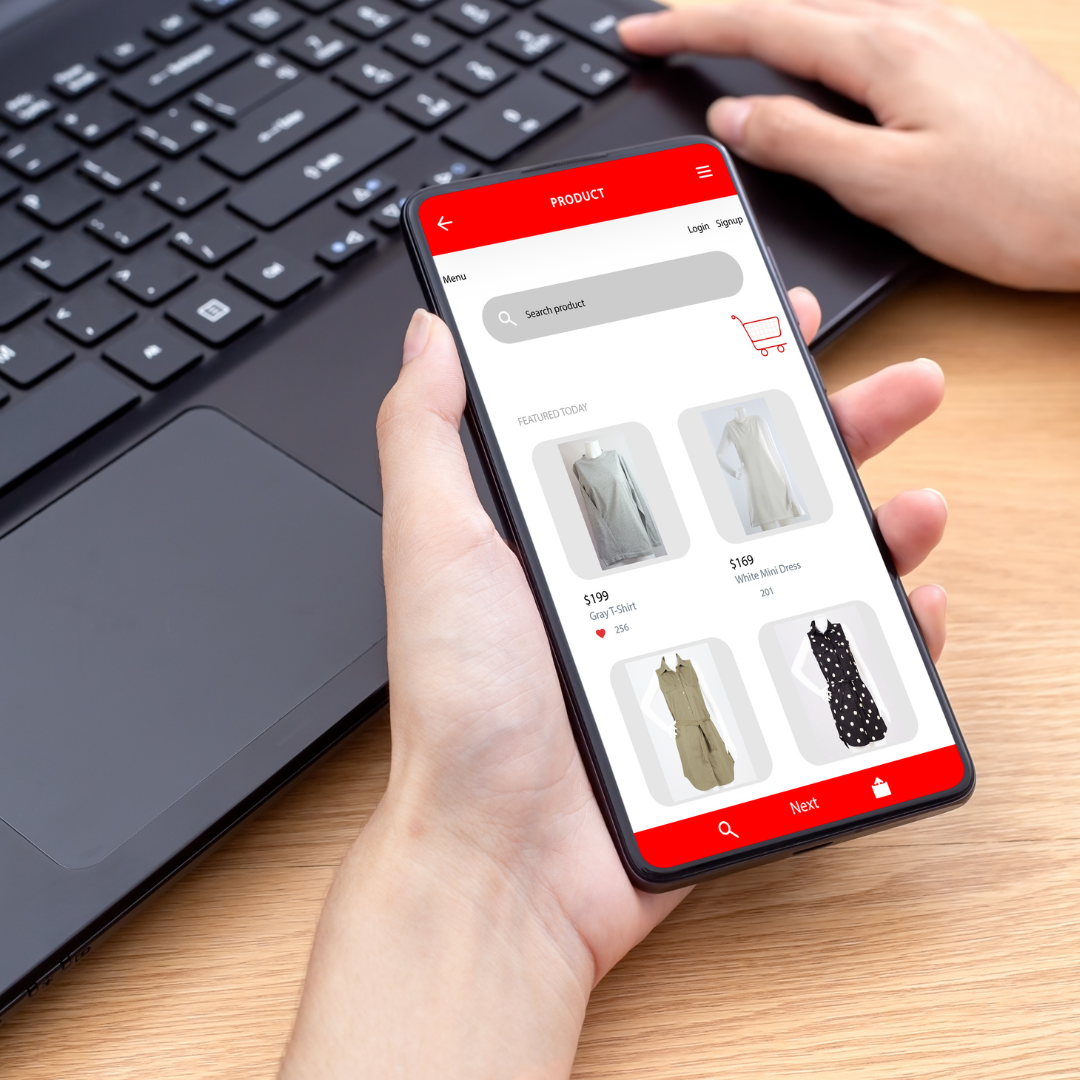
7. Build Your eCommerce Store
Building an e-commerce store is critical in starting an online business. After choosing your e-commerce platform, you must design and customize your website to reflect your brand's identity and attract customers.
This includes creating product pages with high-quality images and detailed descriptions highlighting your products' features and benefits.
To improve exposure and increase traffic to your website, you should also optimize it for search engines.
This can include optimizing your website's page speed, keyword targeting, and creating compelling meta descriptions.
Next, you must set up payment gateways to accept payments securely and easily from your customers.
Popular payment gateways include PayPal, Stripe, and Square. Finally, you must integrate shipping methods to ensure your products can be delivered to your customers.
This can include integrating with shipping carriers such as UPS or FedEx or setting up local delivery options.
By building a well-designed and functional e-commerce store, you can provide a seamless shopping experience for your customers and set your business up for success.

8. Create A Marketing Strategy
Consider your target audience and their channels to discover new products and purchases.
Using social media marketing to connect with your current audience and attract new ones can be successful.
You should choose platforms that align with your target audience, such as Instagram or Facebook.
Email marketing is another effective way to communicate with your customers and drive sales. You can send newsletters, promotional emails, and abandoned cart reminders to stay top-of-mind with your audience.
Paid advertising, such as Google Ads or Facebook Ads, can also help drive traffic and conversions to your e-commerce store.
Are You Tired Of Scams?
Try The Most-Trusted Training Platform To Make Money Online!
Finally, search engine optimization (SEO) ensures your website appears in search engine results and drives organic traffic to your store.
This includes optimizing your website's content, meta tags, and other technical factors to improve its search engine ranking.
By creating a comprehensive marketing strategy that includes social media, email marketing, paid advertising, and SEO, you can reach new customers and drive sales for your e-commerce business.
9. Launch Your eCommerce Store
One effective way to launch your e-commerce store is to announce it on social media, such as Facebook, Instagram, and Twitter.
You can create engaging posts and run social media ads to spread the word about your store launch.
It's also important to offer promotional discounts or giveaways to incentivize new customers to purchase.
Another effective strategy is to reach out to your target market, including influencers, bloggers, and industry leaders, to get their feedback and promote your store.
You can also run paid advertising campaigns, such as Google Ads or Facebook Ads, to drive traffic to your store and boost sales.
Finally, you should monitor your website traffic and sales metrics to determine the effectiveness of your launch strategy and make adjustments as needed.
Launching your e-commerce store effectively can attract new customers and drive sales for your business.

10. Monitor Your Performance
Tracking your sales and revenue is an important aspect of performance monitoring, as it can help you identify which products are popular and which are not.
Additionally, customer feedback is crucial to understanding how customers feel about your products, services, and website experience.
You can gather feedback through surveys, social media, and email marketing campaigns.
Monitoring website analytics, such as traffic, bounce rates, and conversion rates, can help you identify areas of your website that may need improvement, such as website speed and mobile optimization.
It's important to regularly analyze your performance data and make necessary changes to optimize your e-commerce store for success.
By monitoring your performance, you can make informed business decisions and continue to grow your e-commerce business.
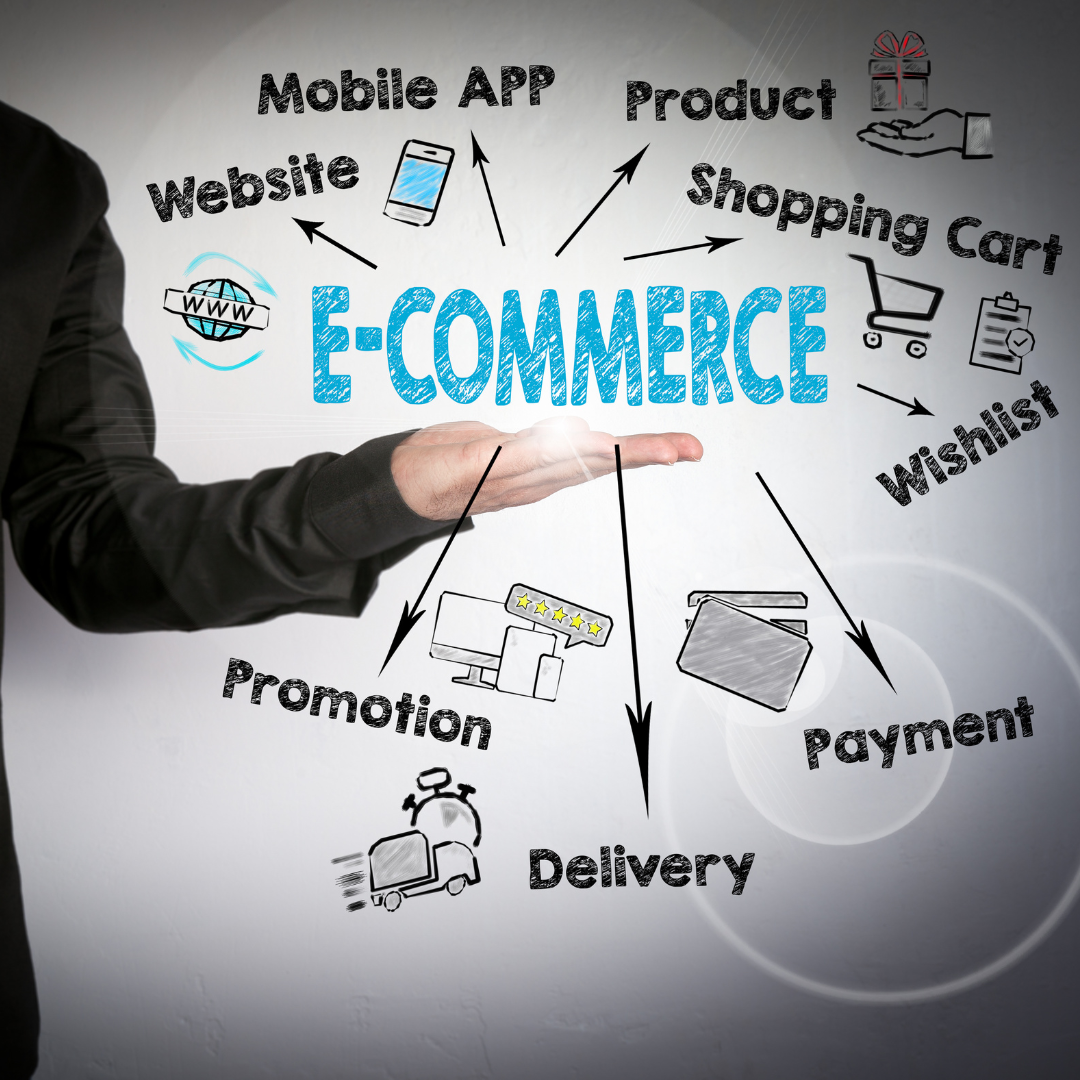
Tips To Be A Successful In The eCommerce Business
Here are some tips to be successful in the e-commerce business:
1. Provide Excellent Customer Relations
Customers expect quick and efficient responses to their inquiries and complaints, so it's essential to have a system in place to address these issues promptly.
This includes having a dedicated customer service team, offering multiple communication channels such as email, phone, and chat support, and setting clear expectations for response times.
In addition, it's important to take customer feedback seriously and use it to improve your business processes. Ask for feedback after each purchase and implement changes based on the feedback received.
Providing personalized service and going above and beyond for customers can also lead to positive word-of-mouth marketing, a powerful tool for e-commerce businesses.
Remember, a satisfied customer will likely become a repeat customer and refer others to your business, so prioritize customer service and make it a key aspect of your e-commerce strategy.
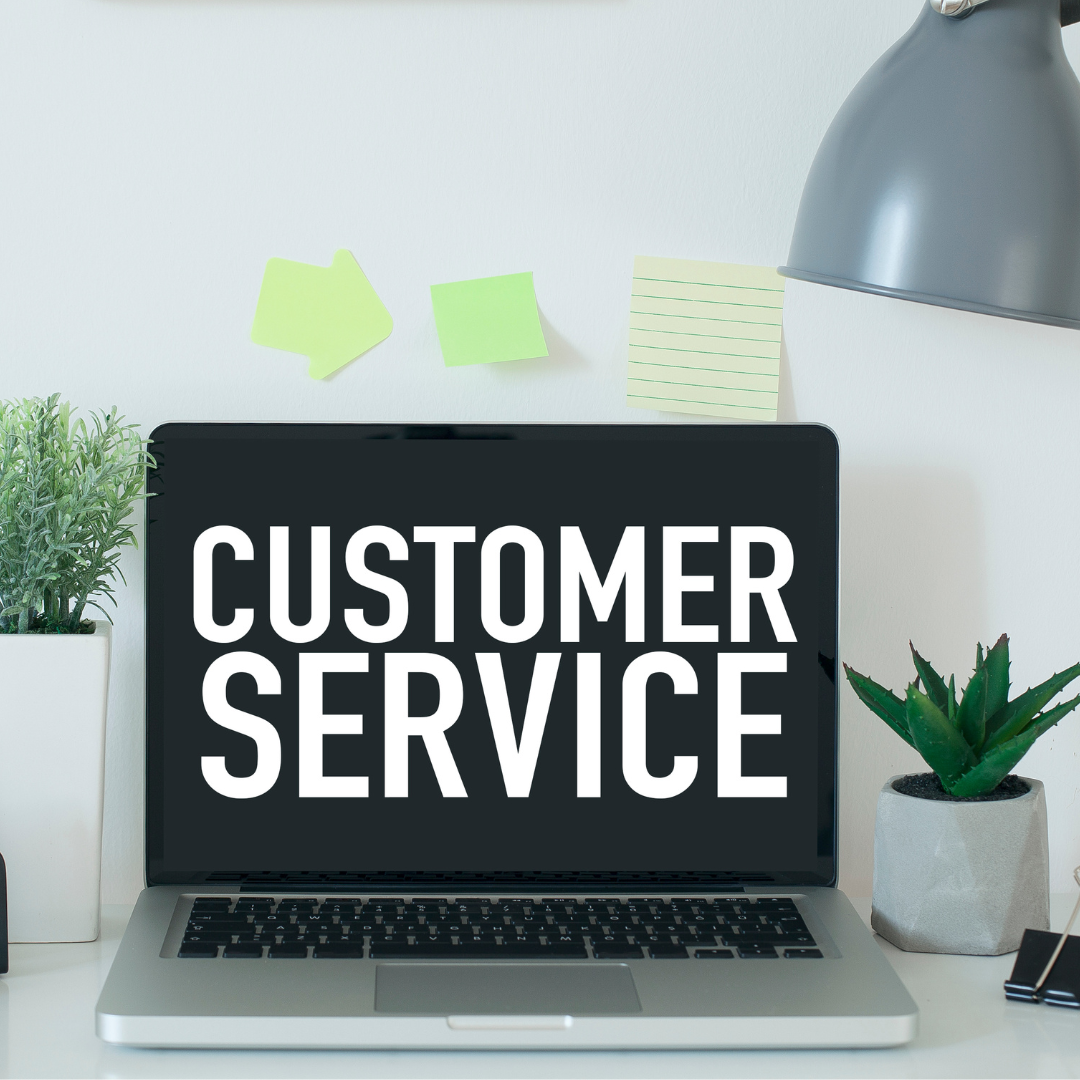
2. Offer Exceptional Customer Service
Offering exceptional customer service is crucial to the success of any e-commerce business.
It helps build customer trust and loyalty, leading to positive word-of-mouth marketing and increased sales.
To offer excellent customer service, respond promptly to any customer inquiries or complaints. Consider using chatbots or automated messages to ensure timely responses.
You can also go above and beyond by offering personalized recommendations or gifts with purchases.
Finally, continuously track customer feedback and reviews to improve your customer service strategy.
By prioritizing exceptional customer service, you can set your e-commerce business apart from competitors and build a loyal customer base.

3. Leverage Social Media Marketing
Social media marketing is a powerful tool for any e-commerce business. You can reach a wider audience and promote your brand by leveraging social media platforms like Facebook, Instagram, and Twitter.
To effectively use social media marketing, you must create engaging content that resonates with your target audience. This can include product images, videos, blog posts, and customer testimonials.
You should also promptly engage with your followers by responding to comments and messages and running social media contests and giveaways to boost engagement.
Additionally, you can use social media advertising to reach particular demographics and increase website traffic.
Using social media marketing effectively can increase brand awareness, boost website traffic, and drive sales for your e-commerce business.
Want To Learn How To Create Your Own Website And Online Business?
Try My #1 Recommendation Training And Hosting Platform!
4. Stay Updated With Industry Trends
Staying updated with industry trends is crucial for any e-commerce business.
By keeping up with emerging technologies, consumer behaviour, and marketing strategies, you can make informed decisions to help your business stay ahead of the competition.
You can attend industry conferences, read industry publications and blogs, and join online forums and groups to stay updated.
You can also analyze data from your business and industry trends to identify areas for improvement and potential opportunities.
By staying on top of industry trends, you can ensure that your e-commerce business remains relevant and competitive in the long run.

5. Monitor Your Analytics
By keeping an eye on website traffic, sales data, and customer feedback, you can identify what's working well and what areas need improvement.
Use website analytics tools like Google Analytics to track metrics such as website visitors, bounce rates, and conversion rates.
Analyze sales data to see which products are popular or not. Solicit customer feedback through surveys and reviews to understand their needs and expectations.
By monitoring these metrics, you can make data-driven decisions to improve your e-commerce store, increase sales, and enhance customer satisfaction.
Remember, data is your friend, and utilizing analytics can give you a competitive edge in the e-commerce market.

Conclusion
Starting an online store may be a successful and rewarding endeavour. However, it necessitates thorough preparation, investigation, and execution.
It's crucial to pick a market for which you have enthusiasm and where there is a need for your goods or services.
Perform market research to assess the viability of your preferred location and examine your rivals to identify a unique selling proposition.
Develop a solid business plan, choose the right e-commerce platform, build your store, create a marketing strategy, and launch your business.
Finally, monitor your performance and make adjustments as needed. With dedication, hard work, and a little luck, you can build a successful e-commerce business.
I trust you enjoyed this article on the Best Ways To Start An eCommerce Business. Would you please stay tuned for more articles to come?
Take care!
JeannetteZ
Want to Learn How to Build Your Own Home-Based Online Business & Start Making Money Online From Your Comfortable Couch?
Try Wealthy Affiliate!
Your Opinion Is Important To Me
Thoughts? Ideas? Questions? I would love to hear from you. Please leave me your questions, experiences, remarks, and suggestions on the Best Ways To Start An eCommerce Business in the comments below. You can also contact me by email at Jeannette@WorkFromAnywhereInTheWorld.com.
Disclosure
This post may contain affiliate links. I earn from qualifying purchases as an Amazon Associate and other affiliate programs. Please read my full affiliate disclosure.
You may also enjoy the following articles:
Wealthy Affiliate Review – Scam or Legit? The Truth Exposed
Legit Ways To Make Extra Money Before Christmas
How Do Blogs Work – Definition And Guide
How To Get Listed In Search Engines



